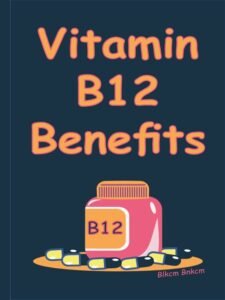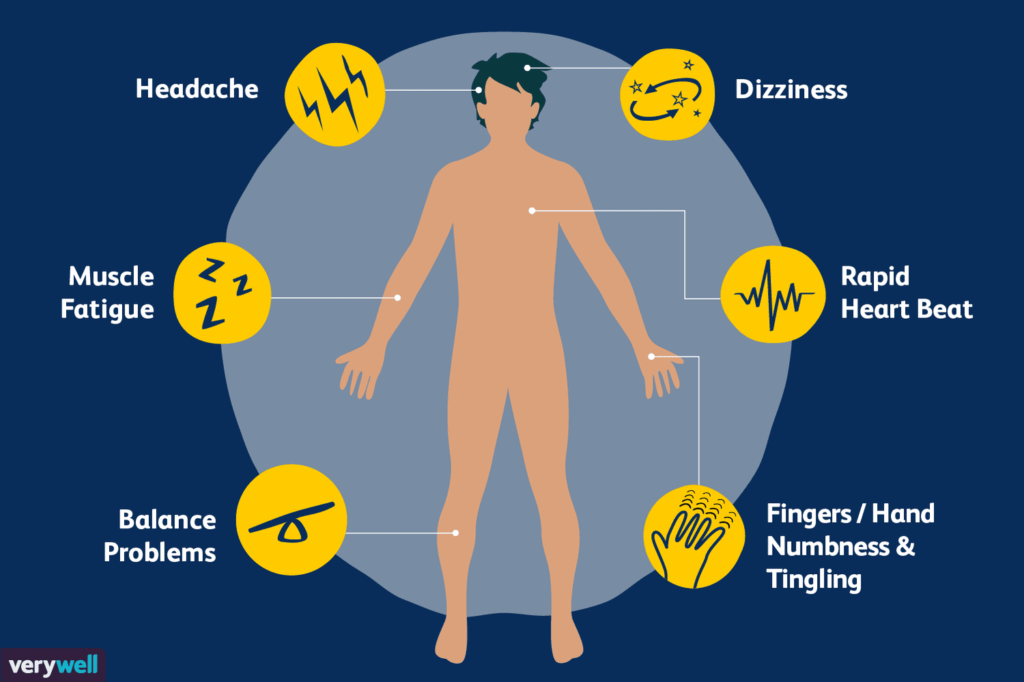Introduction: Wellhealthorganic Vitamin B12
Vitamin B12 is an essential nutrient that plays a crucial role in maintaining overall health and well-being. This article explores the importance of Vitamin B12, its benefits, sources, and the latest insights from Wellhealthorganic on how this vital vitamin can enhance your health.
1. Understanding Vitamin B12
Vitamin B12, also known as cobalamin, is a water-soluble vitamin that is vital for several physiological functions. It is crucial for the production of red blood cells, DNA synthesis, and the proper functioning of the nervous system.
Key Facts about Vitamin B12:
- Chemical Form: Cobalamin
- Solubility: Water-soluble
- Primary Sources: Animal products, fortified foods, and supplements
2. Health Benefits of Vitamin B12
Vitamin B12 offers a range of health benefits, making it a critical nutrient for maintaining optimal health. Here’s how it supports your body:
- Red Blood Cell Formation: Vitamin B12 is essential for the production of red blood cells. A deficiency can lead to anemia, characterized by fatigue, weakness, and dizziness.
- Nervous System Health: It supports the health of the nervous system by aiding in the formation of myelin, the protective sheath around nerves. This helps maintain proper nerve function and reduces the risk of neurological issues.
- DNA Synthesis: Vitamin B12 plays a role in DNA synthesis, which is vital for cell division and the production of new cells.
- Energy Levels: Adequate levels of Vitamin B12 are associated with improved energy levels and reduced fatigue. It helps in converting food into energy, contributing to overall vitality.
- Mood and Cognitive Function: Some studies suggest that Vitamin B12 may have a positive impact on mood and cognitive function. It is believed to help manage symptoms of depression and support cognitive health.
3. Sources of Vitamin B12
Incorporating Vitamin B12 into your diet can be achieved through various sources:
- Animal Products: Vitamin B12 is naturally found in animal-based foods such as meat, poultry, fish, eggs, and dairy products. Examples include beef, chicken, salmon, milk, and cheese.
- Fortified Foods: For those following a vegetarian or vegan diet, fortified foods are a valuable source of Vitamin B12. These include fortified cereals, plant-based milks, and nutritional yeast.
- Supplements: Vitamin B12 supplements are available in various forms, including tablets, capsules, and sublingual (dissolvable) formats. Supplements can be particularly useful for individuals with dietary restrictions or absorption issues.
4. Deficiency and Symptoms
Vitamin B12 deficiency can lead to a range of health issues. Recognizing the symptoms and understanding the causes can help in managing and preventing deficiency:
- Symptoms of Deficiency: Common symptoms include fatigue, weakness, pale skin, shortness of breath, numbness or tingling in the hands and feet, and difficulty walking. Severe deficiency can lead to neurological problems and cognitive decline.
- Causes of Deficiency: Deficiency may result from inadequate dietary intake, poor absorption due to gastrointestinal conditions (e.g., pernicious anemia, Crohn’s disease), or certain medications that interfere with Vitamin B12 absorption.
5. Recommendations from Wellhealthorganic
Wellhealthorganic emphasizes the importance of maintaining optimal Vitamin B12 levels for overall health. Here are some recommendations to ensure you’re getting enough of this vital nutrient:
- Balanced Diet: Incorporate a variety of Vitamin B12-rich foods into your diet. If you’re vegetarian or vegan, choose fortified foods and consider supplements.
- Regular Testing: If you suspect a deficiency or have symptoms, consult a healthcare provider for a Vitamin B12 blood test. Regular testing can help monitor and manage your levels.
- Supplementation: If dietary intake is insufficient or absorption is impaired, Vitamin B12 supplements can help maintain adequate levels. Consult with a healthcare provider to determine the appropriate dosage and form.
6. Future Trends and Research
Ongoing research continues to uncover new insights into Vitamin B12 and its effects on health. Some areas of interest include:
- Bioavailability: Studies are exploring the best forms and delivery methods of Vitamin B12 supplements to enhance absorption and efficacy.
- Mental Health: Research is investigating the relationship between Vitamin B12 levels and mental health conditions, including depression and cognitive disorders.
- Disease Prevention: Ongoing studies are examining the role of Vitamin B12 in preventing chronic diseases and promoting overall well-being.
Importance of Vitamin B12
Vitamin B12 is crucial for several bodily functions, including:
1. Energy Production: It helps convert food into energy, reducing fatigue.
2. Nerve Health: Supports the maintenance of the nervous system, preventing nerve damage.
3. Red Blood Cell Formation: Essential for the production of healthy red blood cells, preventing anemia.
Benefits of WellHealthOrganic Vitamin B12
 WellHealthOrganic Vitamin B12 supplements offer several benefits:
WellHealthOrganic Vitamin B12 supplements offer several benefits:
– Improved Energy Levels: Regular intake can combat tiredness and boost energy.
– Enhanced Brain Function: It may improve memory and reduce the risk of cognitive decline.
– Better Mood Regulation: B12 supports serotonin production, which can enhance mood and reduce symptoms of depression.
Who Needs Vitamin B12?
Certain groups are more at risk of B12 deficiency:
– Vegans and Vegetarians: B12 is mainly found in animal products, making supplements crucial for those on plant-based diets.
– Older Adults: Absorption decreases with age, increasing the risk of deficiency.
– Individuals with Digestive Disorders: Conditions like Crohn’s disease or celiac disease can hinder absorption.
Signs of Vitamin B12 Deficiency

Common symptoms of deficiency include:
– Fatigue and weakness
– Pale or jaundiced skin
– Nerve problems, like tingling or numbness
– Difficulty thinking and memory loss
| Category | Details |
|---|---|
| Product Name | Wellhealthorganic Vitamin B12 |
| Form | Tablets, Capsules, Sublingual Drops |
| Active Ingredient | Methylcobalamin |
| Dosage | 1000 mcg per tablet/capsule/drop |
| Recommended Use | 1 tablet/capsule/drop daily or as directed by a healthcare provider |
| Bioavailability | High, due to the use of Methylcobalamin |
| Suitable For | Vegetarians, Vegans, Older Adults, Athletes |
| Free From | Gluten, Soy, Dairy, Artificial Colors, and Preservatives |
| Certifications | GMP Certified, Third-Party Tested |
| Packaging | Recyclable, BPA-Free Containers |
| Storage Instructions | Store in a cool, dry place, away from direct sunlight |
| Shelf Life | 2 years from the date of manufacture |
| Health Benefits | Energy Boost, Improved Mental Clarity, Red Blood Cell Formation, Neurological Health |
| Potential Side Effects | Rare; may include dizziness, headache, nausea |
| Price Range | $15 – $30 per bottle (60 tablets/capsules/drops) |
| Availability | Online and in select health stores |
| Customer Rating | 4.8/5 based on customer reviews |
| Company Mission | Promote holistic health through high-quality, natural supplements |
| Customer Support | 24/7 support via email and phone |
What is Vitamin B12?

Vitamin B12, also known as cobalamin, is a water-soluble vitamin that plays a pivotal role in the functioning of the brain and nervous system. It’s also essential for the formation of red blood cells and DNA synthesis. Chemically, it contains the mineral cobalt and can be found in several forms, including cyanocobalamin and methylcobalamin.
Benefits of Vitamin B12

Energy Production
One of the primary benefits of Vitamin B12 is its role in energy production. It helps convert carbohydrates into glucose, which your body uses for energy. If you’re feeling fatigued, low B12 levels might be the culprit.
Red Blood Cell Formation
Vitamin B12 is essential for the production of red blood cells. Without adequate B12, red blood cells can become abnormally large and fail to divide properly, leading to anemia.
Neurological Health
Vitamin B12 plays a significant role in maintaining neurological health. It helps in the production of myelin, a protective sheath that covers your nerves. A deficiency can lead to neurological issues, including memory loss and mood changes.
DNA Synthesis
Every cell in your body needs DNA to function properly. Vitamin B12 is crucial for DNA synthesis, ensuring that cells divide correctly and function optimally.
Conclusion
Vitamin B12 is a vital nutrient with numerous health benefits, including supporting red blood cell formation, nervous system health, and overall energy levels. By incorporating Vitamin B12-rich foods into your diet, considering fortified options, and taking supplements if needed, you can maintain optimal health.
